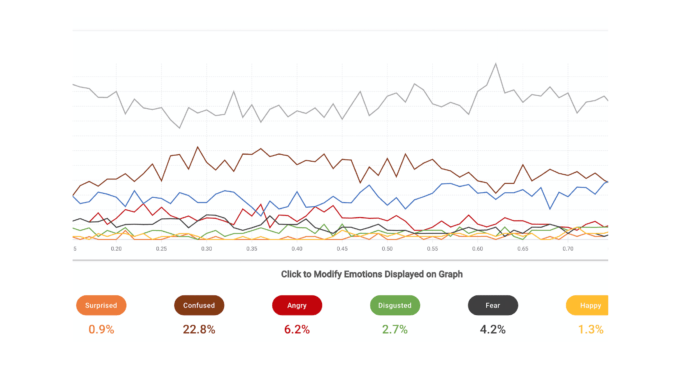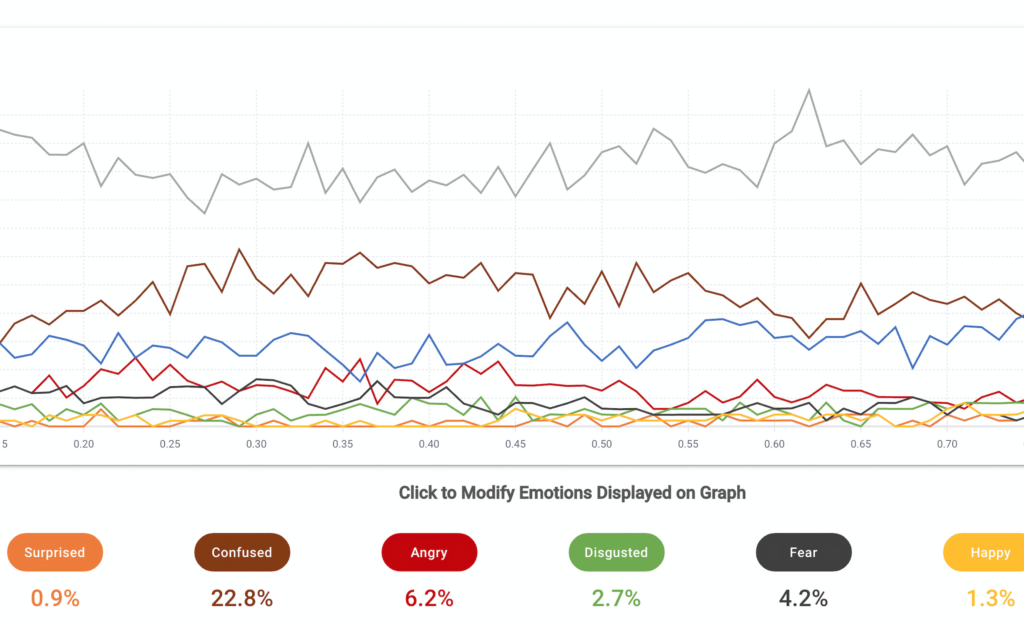
Ever wondered if a regular witness, or an expert witness, will be convincing, credible or engaging in court? Ever asked out loud if there was a test that showed how people responded on an emotional level to others involved in a court case? If you have, then meet US-based CampaignTester.
CampaignTester analyses facial expressions in real-time, second-by-second, of a 100 or more volunteers, who are watching a short video of the person you want to do a reaction test on.
Their emotion spotting software – which has been trained to spot a range of emotional responses (see video below), such as anger, sadness and surprise – watches the group’s reactions, captures them, and presents the data with a detailed breakdown.
(Video presentation of the system and discussion – 16 mins)
If you were a trial lawyer, for example, and wanted to know if your expert witness was not just well-qualified, but could be convincing and credible in front of a jury, then this system should give you a steer on how a random sample of people (in this case 100) might react.
The sample audience are asked to watch a video of the person on a device with a camera, e.g. an iPhone, and the software records their reactions. No notable reaction is considered the baseline, and the system is set to look for changes from this. That data is then analysed and indications on how people react to a certain person are provided.
You can then make a decision on whether to, or how best to, use that witness in court.

CEO Aaron Itzkowitz told Artificial Lawyer that the people who watch the videos can be a list of people you have already chosen, or they can be a randomly assembled group who are offered a very small incentive to take part, such as an Amazon gift card for $5.

In the video walk-through, Artificial Lawyer asks about a couple of regulatory aspects, such as what happens to the data of the people who have had their faces analysed for emotional responses? On that one Itzkowitz explained that this data is wiped after they have done the analysis.
The tech also has many other applications, and CampaignTester works in other fields, such as advertising, where the system can be used to test out an ad for reactions of a sample audience before it’s made public. The goal here is that even though an advert may be very clever, what kind of emotional reaction does it really create in the viewer? The company claims that their approach is more effective than using a focus group to tell you if a campaign is working the way you expect.
Overall, it’s a fascinating area, although not without risks. Sample bias needs to be clearly understood, as that can skew results, for example. Also, users need to appreciate these are unconscious responses, i.e. intellectually a person may like the argument a witness makes, but for whatever reason it triggers an emotional response that is very different.
In short, this is a complex area, but one that given the advances in technology today is only going to grow.
(P.S. Probably not a use case right now, nor for a very, very long time, but it might also be used as part of a Voight-Kampff test one day ….. 🙂